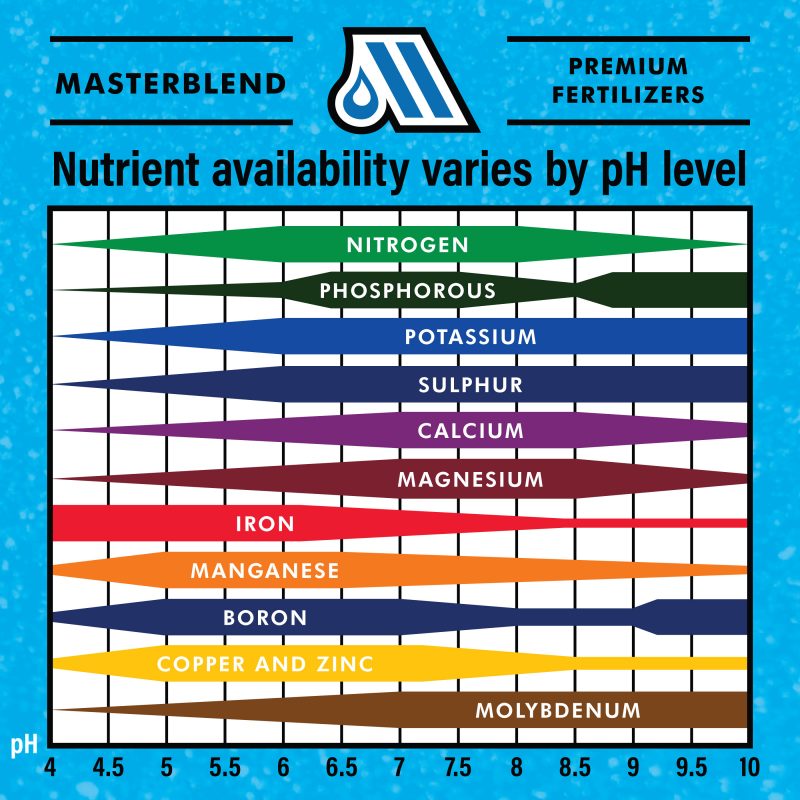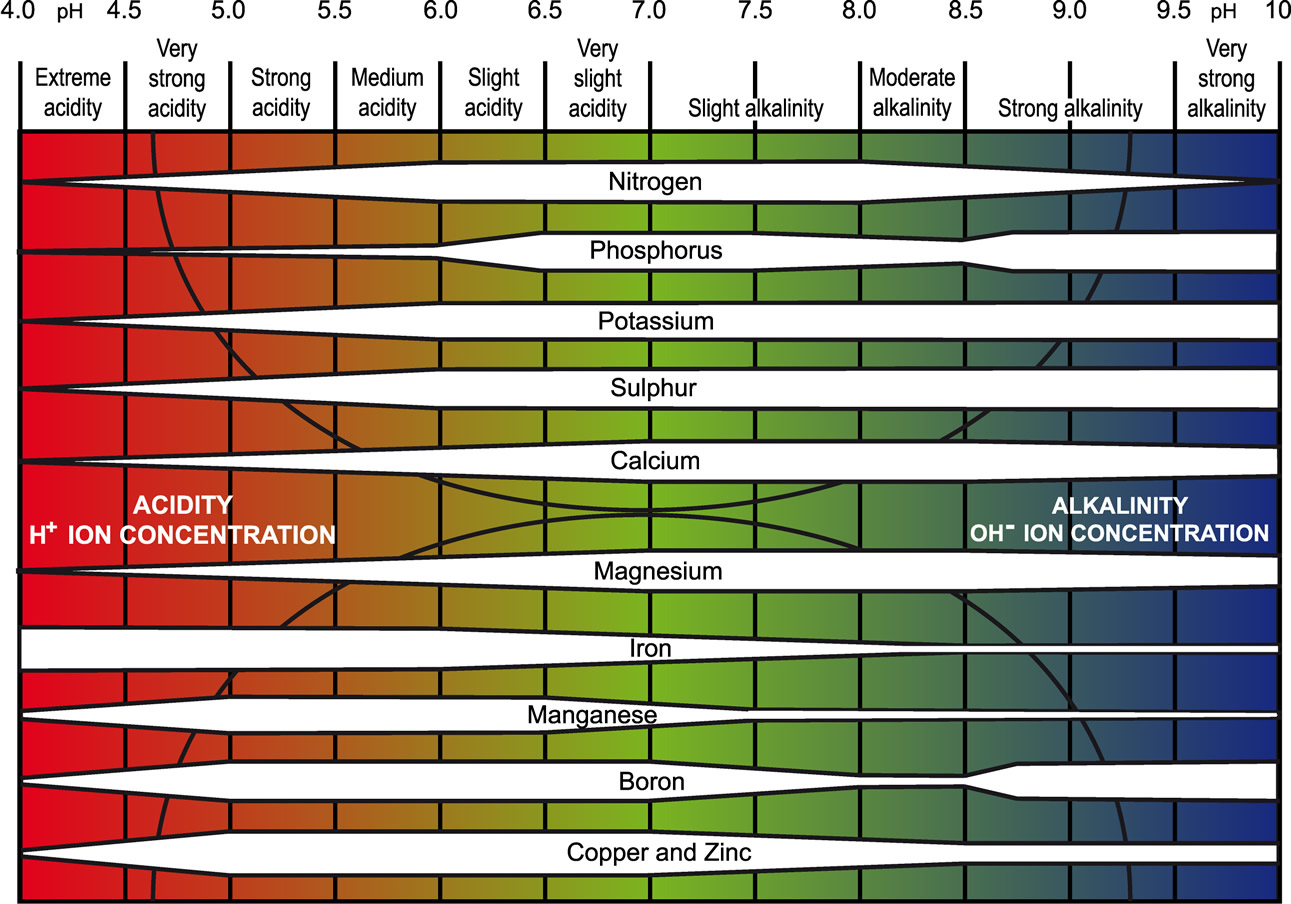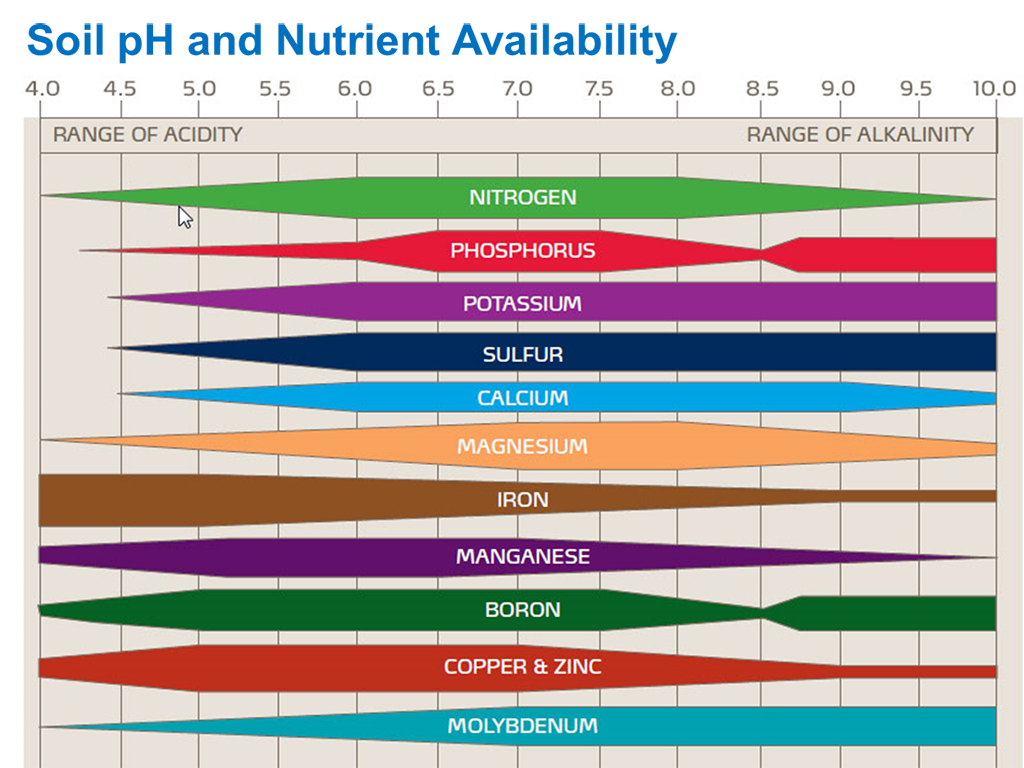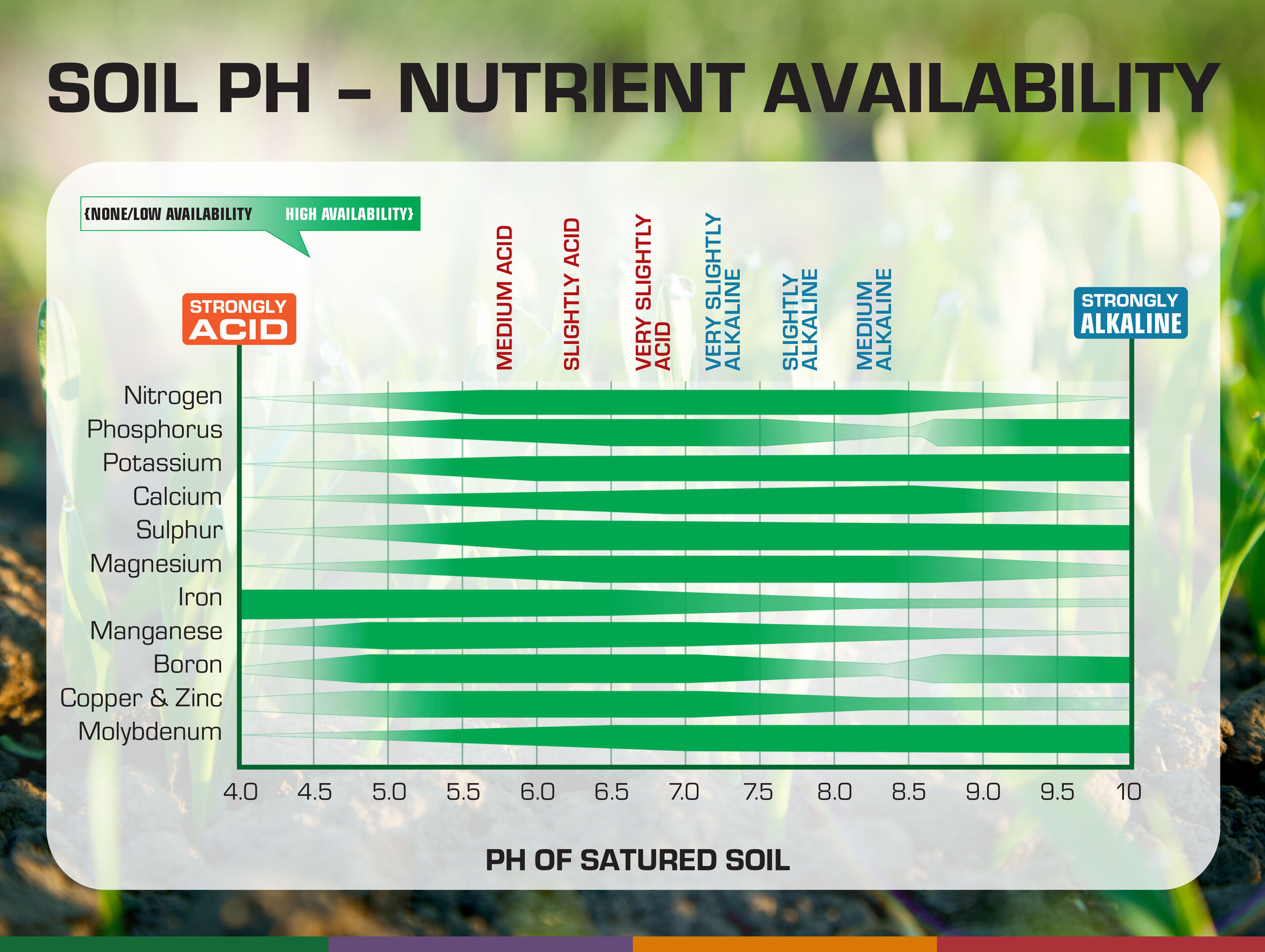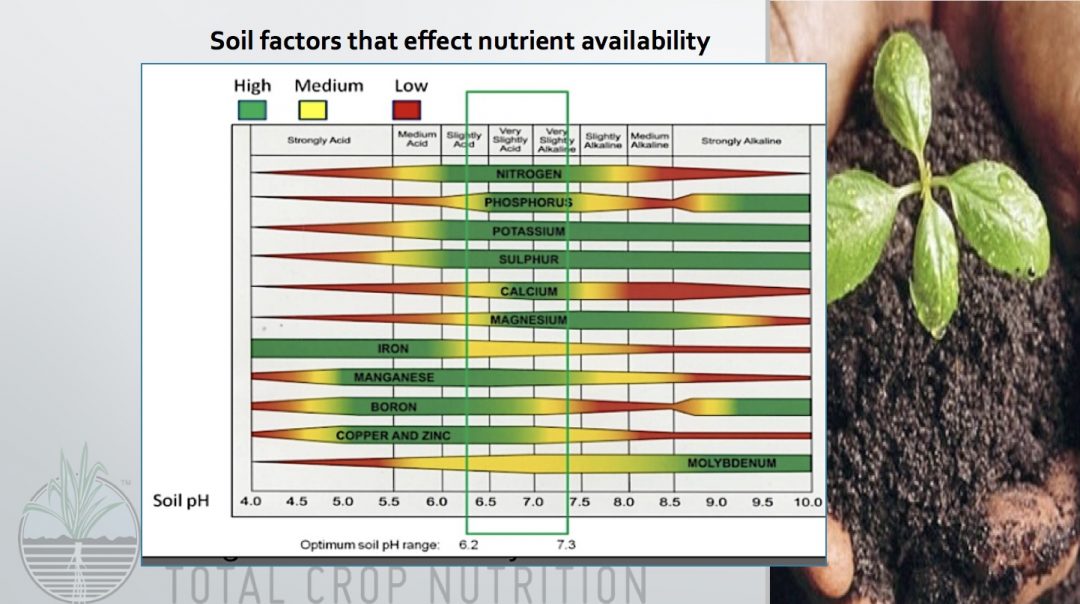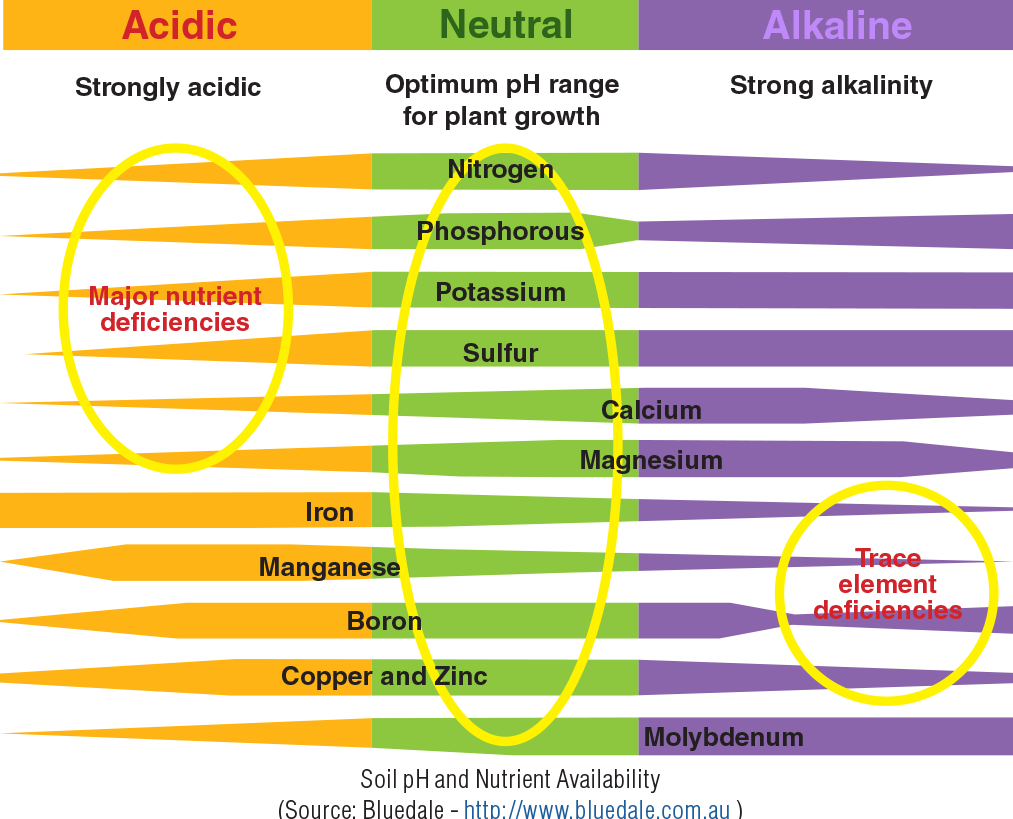Nutrient Availability Ph - A soil surface with ph values greater than 7. Most crops thrive in a slightly acidic to neutral ph range (approximately 6.0 to 7.5), where nutrient availability is generally. Plants obtain nearly all their nutrients from the soil, but not all the nutrients present in the soil are accessible to plants. 1) lead to a deficiency of many nutrients, decline. Soil ph levels that are too high or too low (fig. For most crops, ph of 6 to 7.5 is optimal (table 1).
A soil surface with ph values greater than 7. For most crops, ph of 6 to 7.5 is optimal (table 1). 1) lead to a deficiency of many nutrients, decline. Most crops thrive in a slightly acidic to neutral ph range (approximately 6.0 to 7.5), where nutrient availability is generally. Plants obtain nearly all their nutrients from the soil, but not all the nutrients present in the soil are accessible to plants. Soil ph levels that are too high or too low (fig.
1) lead to a deficiency of many nutrients, decline. Plants obtain nearly all their nutrients from the soil, but not all the nutrients present in the soil are accessible to plants. Soil ph levels that are too high or too low (fig. For most crops, ph of 6 to 7.5 is optimal (table 1). A soil surface with ph values greater than 7. Most crops thrive in a slightly acidic to neutral ph range (approximately 6.0 to 7.5), where nutrient availability is generally.
What Effect Does pH Have on Nutrient Uptake in Plants? • Masterblend
Most crops thrive in a slightly acidic to neutral ph range (approximately 6.0 to 7.5), where nutrient availability is generally. Soil ph levels that are too high or too low (fig. 1) lead to a deficiency of many nutrients, decline. For most crops, ph of 6 to 7.5 is optimal (table 1). Plants obtain nearly all their nutrients from the.
Nutrient Availability Chart
Plants obtain nearly all their nutrients from the soil, but not all the nutrients present in the soil are accessible to plants. A soil surface with ph values greater than 7. 1) lead to a deficiency of many nutrients, decline. Most crops thrive in a slightly acidic to neutral ph range (approximately 6.0 to 7.5), where nutrient availability is generally..
Impact of pH on nutrient availability Potash Development Association
Plants obtain nearly all their nutrients from the soil, but not all the nutrients present in the soil are accessible to plants. 1) lead to a deficiency of many nutrients, decline. Most crops thrive in a slightly acidic to neutral ph range (approximately 6.0 to 7.5), where nutrient availability is generally. Soil ph levels that are too high or too.
Ph And Nutrient Availability Chart Portal.posgradount.edu.pe
For most crops, ph of 6 to 7.5 is optimal (table 1). Soil ph levels that are too high or too low (fig. A soil surface with ph values greater than 7. Plants obtain nearly all their nutrients from the soil, but not all the nutrients present in the soil are accessible to plants. Most crops thrive in a slightly.
Ph And Nutrient Availability Chart Portal.posgradount.edu.pe
Most crops thrive in a slightly acidic to neutral ph range (approximately 6.0 to 7.5), where nutrient availability is generally. Soil ph levels that are too high or too low (fig. Plants obtain nearly all their nutrients from the soil, but not all the nutrients present in the soil are accessible to plants. A soil surface with ph values greater.
Soil, Ph and Nutrient Availability PowerRich
A soil surface with ph values greater than 7. For most crops, ph of 6 to 7.5 is optimal (table 1). Soil ph levels that are too high or too low (fig. Most crops thrive in a slightly acidic to neutral ph range (approximately 6.0 to 7.5), where nutrient availability is generally. Plants obtain nearly all their nutrients from the.
Agriculture News The Andersons Nutrient & Industrial Group
Soil ph levels that are too high or too low (fig. Most crops thrive in a slightly acidic to neutral ph range (approximately 6.0 to 7.5), where nutrient availability is generally. Plants obtain nearly all their nutrients from the soil, but not all the nutrients present in the soil are accessible to plants. For most crops, ph of 6 to.
The effect of soil pH on nutrient availability. Download Scientific
Soil ph levels that are too high or too low (fig. For most crops, ph of 6 to 7.5 is optimal (table 1). 1) lead to a deficiency of many nutrients, decline. Most crops thrive in a slightly acidic to neutral ph range (approximately 6.0 to 7.5), where nutrient availability is generally. Plants obtain nearly all their nutrients from the.
Soil pH and Nutrient Availability HORIBA
For most crops, ph of 6 to 7.5 is optimal (table 1). Most crops thrive in a slightly acidic to neutral ph range (approximately 6.0 to 7.5), where nutrient availability is generally. Plants obtain nearly all their nutrients from the soil, but not all the nutrients present in the soil are accessible to plants. Soil ph levels that are too.
Soil pH Small Space Gardening
Most crops thrive in a slightly acidic to neutral ph range (approximately 6.0 to 7.5), where nutrient availability is generally. 1) lead to a deficiency of many nutrients, decline. For most crops, ph of 6 to 7.5 is optimal (table 1). Plants obtain nearly all their nutrients from the soil, but not all the nutrients present in the soil are.
1) Lead To A Deficiency Of Many Nutrients, Decline.
A soil surface with ph values greater than 7. For most crops, ph of 6 to 7.5 is optimal (table 1). Plants obtain nearly all their nutrients from the soil, but not all the nutrients present in the soil are accessible to plants. Most crops thrive in a slightly acidic to neutral ph range (approximately 6.0 to 7.5), where nutrient availability is generally.
